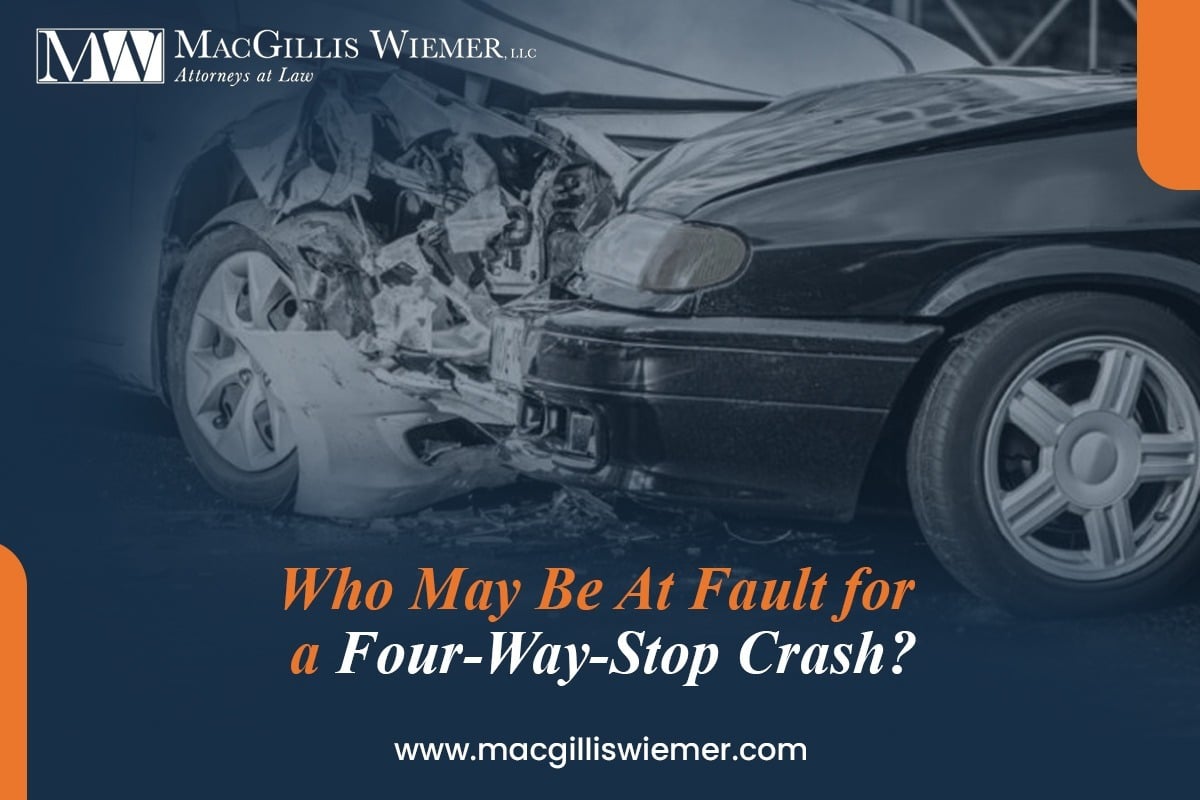Intersections are highly prone to accidents and crash risks mainly due to drivers negelience. They often ignore the right-of-the-way law at the intersections and go through when they are needed to stop. The four-way stops can be confusing, and the lack of traffic cameras can make the investigations challenging. In this blog, we discuss four-way-stop intersections and when the driver may be held liable to help you navigate the legal process.
What is a Four-Way-Stop?
A four-way stop is an intersection when where all the drivers from all directions have a stop sign. This implies that no matter which direction the traffic is coming from, no vehicle can drive through the intersection without first coming to a complete stop. After they have stopped, the drivers are required to yield to the driver with the right of way. In unfortunate situations, MacGillis Wiemer, LLC, our Milwaukee car accident attorney, is dedicated to protecting your rights and legal interests.
Rights of Way At a Four-Way Stop?
The rules for the right of way at a four-way stop are straightforward, yet many drivers find them confusing. Once drivers stop their cars, they determine who has the right to way. These rules, which determine which driver has the right of way and when, are simple and easy to follow.
- First To Arrive, First to Drive: At the four-way stop, the first car to arrive and stop at the intersection has the right to go first.
- Yield Right Way to the Driver on the Right: If two vehicles arrive at the same time, the driver on the right of you gets to go first. This ensures that the traffic keeps moving smoothly and prevents standoffs at the intersection.
- You & Driver are Going Straight: If you and the driver get to the intersection at the same time and you are going straight while the driver is turning left, you have the right of way. The driver turning left should wait for you to proceed. However, if you both are going straight, you can proceed through the intersection.
- Driver Turning Right: If both drivers arrive at the same time and you are turning right, you have the right of way. Keep alert for drivers who ignore the right of way and try to turn left while you are turning right.
- Always Signal When Turning: Use turn signals to alert other drivers of the way you are going to avoid a collision.
Who is At Fault For a Crash at a Four-Way Stop?
The party at fault in a four-way stop is likely the driver who failed to execute the right of way. However, it can be difficult to determine which driver failed to yield the right of way and who had the right of way. The investigators examine the crash scene and other evidence to determine the right of way. Here are things you need to recollect before giving a statement:
- Who else was there at the intersection before you got there?
- Do you recollect whether you or the driver has the right of way?
- Were there multiple vehicles at the intersection at the same time?
- Did any other driver fail to yield the right of way or drive through a four-way stop without stopping?
Recollecting the answer to these questions can help you remember what caused the crash. Try recalling all important details and ensure to keep it simple and honest. Along with the driver’s statements, the other evidence collected by the investigators is the crash debris, video footage, witness statement, and damages to other vehicles.
What to Do After a Crash at Four-Way Stop?
Despite your best efforts, crashes still occur, and in case of a four-way stop do the following things:
- Call for medical help immediately
- Take photos of the crash scene and other evidence
- Allow investigators to determine what caused the crash.
- Give your perspective of the crash scene to the police, but do not blame fault, anyone.
- Contact a Milwaukee car accident lawyer to discuss your rights and options.
Need Legal Help After a Four-way Stop Crash?
The car accident lawyers at MacGillis Wiemer, LLC, have extensive experience to help you get the compensation you deserve. If a negligent driver caused you injuries, our team of attorneys are knowledgeable and experts to protect your rights and present you. Let us protect you. For consultation, call us.

